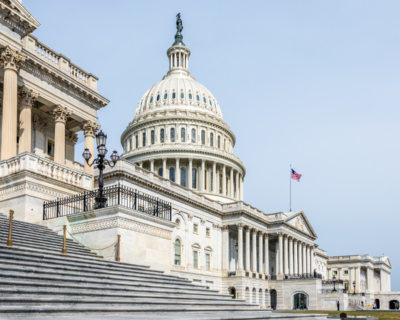Pelican Event: Obama Administration Continues to Hamper Energy Production
Wind, solar, hydro – “energy sources of the past” – predicted to flounder
NEW ORLEANS, La. – On Friday, the Pelican Institute hosted Robert Bradley of the Institute for Energy Research for “Government versus Prosperity,” a presentation on federal energy policy. Joined by Louisiana Congressman Bill Cassidy and introduced by local business leader Jay Lapeyre, Bradley argued that “politically correct” sources of energy were largely futile. He also described administration policies as a war against the oil and gas industry and, inextricably, the Louisiana economy.

Cassidy gave the opening speech and spoke of how the recession has disproportionately harmed those in the energy sector, particularly males without college degrees. He believes the “road to recovery is through energy” and that Louisianians take this for granted. Reasoning with fellow representatives, however, is an ongoing “absurdity” of a challenge. (Click below for Cassidy’s perspective and the introductory remarks of Pelican Institute President, Kevin Kane – 12 minutes.)
[audio:http://cdn.statehousemedia.com/louisiana/2010-12-14/KevinKaneBillCassidyIntroductoryRemarks.mp3]
Bradley’s career, prior to founding and leading IER, was with Enron for 16 years, and this experience provided him with a steady line of ironies and insights. He noted, for example, how Enron and BP were prominent purveyors of climate alarmism, and warned people to be weary of company leaders who say they are greener than the rest. (Click below for Robert Bradley’s lecture – 36 minutes.)
[audio:http://cdn.statehousemedia.com/louisiana/2010-12-14/RobertBradley.mp3]
Undergirding the importance of the theme, he first demonstrated the role of energy in Louisiana – the third largest energy producer in the nation, producing four times the national average. This is unlikely to change, he said, since the Gulf of Mexico’s estimated reserves are greater than those of the East and West Coasts combined, and more than those of Alaska as well.
Since the spill, however, there has been the moratorium on new drilling and the de facto “permitorium.” These actions, he believes, without any legislative mandate from congress, are akin to a war on oil, gas, and coal. Obama’s dream green team, as he described them, have the mentality that everything is a market failure and that consumers will not make the correct decisions.
“We, the smartest guys in the room, should decide for them,” he imitated.
However, “there’s no going back to the renewable energies of the past,” he said. The problem is energy density, and he held up a piece of coal to demonstrate. Coal holds energy from the sun over an extended period of time. Renewable energies, on the other hand, are intermittent and even “parasitic,” since they require fossil fuel support. This fundamental problem, he believes, explains why attempts to advance wind power have continued to fail, not that public optimism sways.
Now, even with heavy subsidies, the politically correct energies of wind and solar make up less than one percent of the American supply. Even of carbon free energy, 95 percent comes from nuclear or hydrothermal plants, hardly favorites of environmentalists.
He noted that carbon based energy has only come to the fore in the last few hundred years and coincided with a flourishing in economic prosperity. Energy may be the master resource, he said, but freedom for human ingenuity to utilize this resource is equally important. He identified the corollary political and philosophical shifts: individualism, science, classical liberalism, and property rights.
Throughout the presentation, Bradley expressed his pleasure at seeing how New Orleans has made strides after Katrina. He noted the growing presence of a pro-business critical mass, alluding to research of the Pelican Institute and the free market programs at Loyola University.
“The threat to energy sustainability – to affordable, plentiful, reliable energy – is not the free market, private property; it is statism. In the name of energy sustainability we have a lot government intervention that makes energy scarce.”
Bradley finished by accepting questions from the audience, and one can listen here – 16 minutes:
[audio:http://cdn.statehousemedia.com/louisiana/2010-12-14/Questionandanswer.mp3]
Fergus Hodgson is the capitol bureau reporter with the Pelican Institute for Public Policy and editor of The Pelican Post. He can be contacted at fhodgson@pelicanpolicy.org, and one can follow him on twitter.
.








